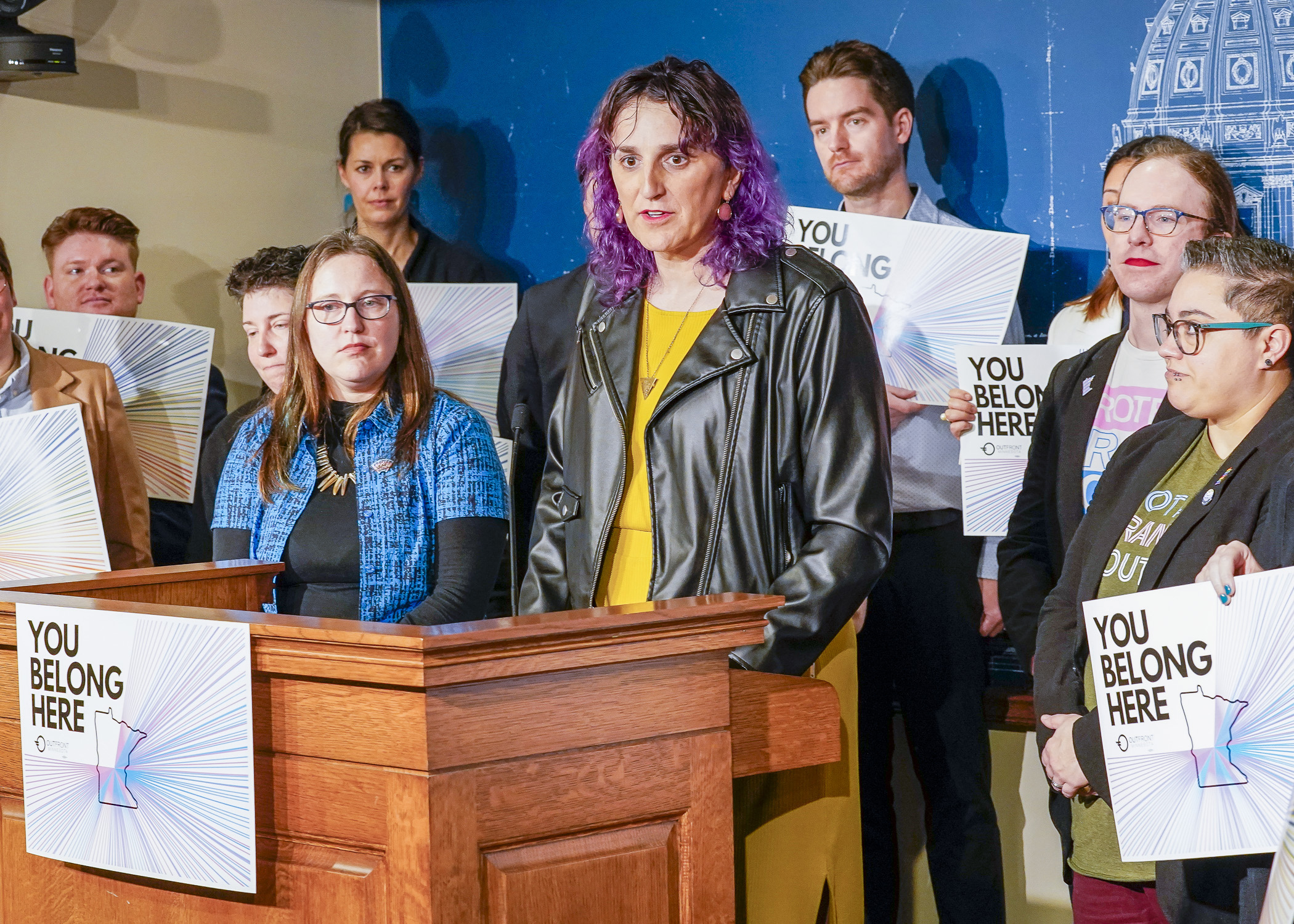House passes bill to establish Minnesota as a ‘trans refuge’ state

Establishing Minnesota as a “trans refuge” is another vote and gubernatorial signature away from becoming law.
A bill to prevent out-of-state laws from interfering in the practice of gender-affirming health care was passed 68-62 by the House before sunrise Friday.
It was clear from the debate’s outset that passions on both sides of the issue run high, as the debate was accompanied by vocal protests – both for and against the measure – outside the House Chamber.
Gender-affirming health care encompasses a range of social and medical interventions to affirm someone’s internal gender identity, including puberty blockers, cross-sex hormones, permanent hair removal, voice therapy, and surgical interventions.
“Gender-affirming care is health care,” Rep. Leigh Finke (DFL-St. Paul), the sponsor of HF146, said at a Thursday news conference.
Specifically, the bill would prohibit the enforcement of a court order for removal of a child or enforcement of another state’s law being applied in a pending child protection action in Minnesota when the law of another state allows the child to be removed from the parent or guardian for receiving medically necessary health care or mental health care that respects the gender-identity of the patient.
Finke, a trans woman and the first trans representative at the Legislature, said anti-trans laws enacted or being proposed in other states are part of a “cruel agenda” to create a culture of fear in children, their parents and adults, leading some to move to another state to get gender-affirming health care.
“We have a responsibility to create more space for our community to live their fullest, authentic lives without fear of violence, rejection, abuse, or political attack,” Finke said.
More than half of trans youth have lost, or are at risk of losing, access to age-appropriate, medically necessary gender-affirming care in their state, according to Dr. Angela Kade Goepferd, medical director of the gender health program at Children’s Minnesota.
This denial of care, she said at the news conference, singles out trans people for discriminatory treatment of their privacy, their family relationships, and their rights to access public accommodations and health care. “As a country, we are literally legislating health disparities into law.”
Studies show that for young people who identify as transgender, gender-affirming care can decrease emotional distress, has positive effects on overall well-being, and reduces thoughts of suicide, Goepferd said.
Among Republican arguments is the proposal undermines parental rights, Rep. Peggy Scott (R-Andover), at a separate pre-session briefing. “It allows children, regardless of age, to seek and receive radical medical treatments … all without their parents’ guidance and love.”
Related Articles
Search Session Daily
Advanced Search OptionsPriority Dailies
Speaker Emerita Melissa Hortman, husband killed in attack
By HPIS Staff House Speaker Emerita Melissa Hortman (DFL-Brooklyn Park) and her husband, Mark, were fatally shot in their home early Saturday morning.
Gov. Tim Walz announced the news dur...
House Speaker Emerita Melissa Hortman (DFL-Brooklyn Park) and her husband, Mark, were fatally shot in their home early Saturday morning.
Gov. Tim Walz announced the news dur...
Lawmakers deliver budget bills to governor's desk in one-day special session
By Mike Cook About that talk of needing all 21 hours left in a legislative day to complete a special session?
House members were more than up to the challenge Monday. Beginning at 10 a.m...
About that talk of needing all 21 hours left in a legislative day to complete a special session?
House members were more than up to the challenge Monday. Beginning at 10 a.m...